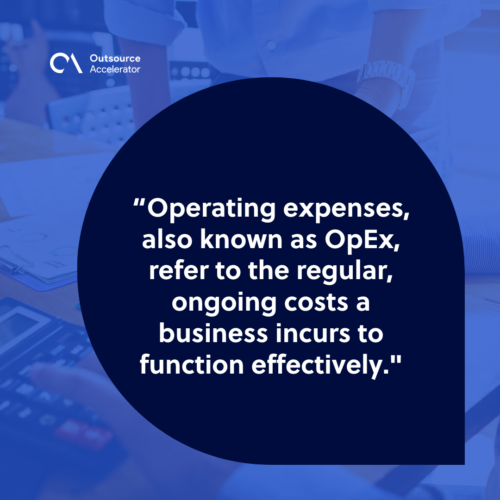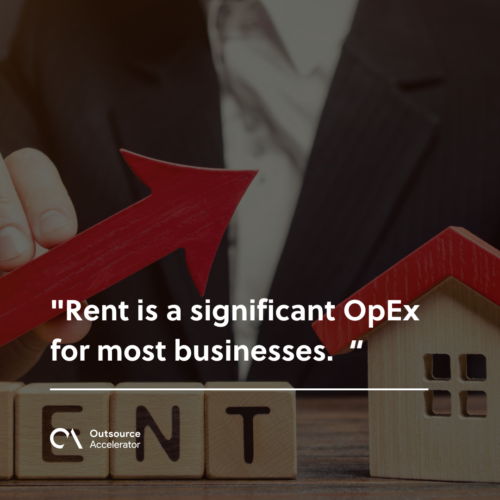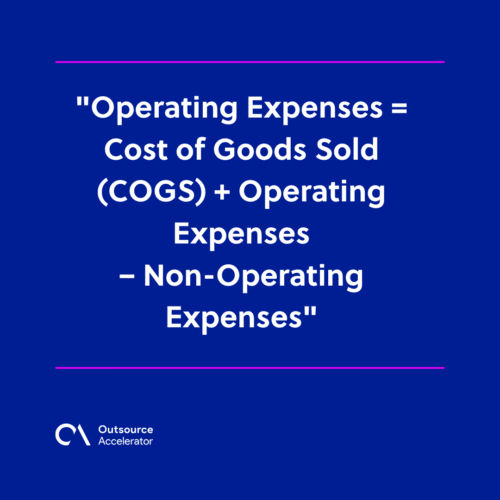Operating expenses: Definition, types, and examples

Operating expenses may not be the most glamorous topic in the world of business, but they play a vital role in determining a company’s financial health and overall profitability.
From the rent paid for office space to the salaries of employees, these ongoing costs are essential for keeping the wheels of a business turning smoothly.
In this article, we will explore the ins and outs of operating expenses — from what they include to how they are calculated.
What are operating expenses?
Operating expenses, also known as OpEx, refer to the regular, ongoing costs a business incurs to function effectively.
These expenses are necessary to keep the business running and cannot be attributed to the company’s production of goods or services.
Operating vs. Non-operating expenses
Operating and non-operating expenses are distinct categories that delineate a company’s financial outflows.
Non-operating expenses are costs incurred outside the core operational activities. Examples include:
- Interest payments on loans
- Losses from the sale of assets
- One-time legal settlements
Non-OpEx are typically incidental and don’t directly contribute to day-to-day functions, but they impact the company’s overall financial health and profitability.
Understanding the distinction between these two expense categories is crucial for accurate financial analysis and strategic decision-making.

Operating expenses vs. Capital expenditures
Capital expenditures, or CapEx, involve significant investments in assets that provide long-term value to a business.
Unlike operating expenses, capital expenditures are capitalized and depreciated over time. Examples include purchasing real estate, equipment, or vehicles.
CapEx reflects asset investments contributing to the company’s growth and earning potential.
Balancing OpEx and CapEx is crucial for comprehensively understanding a business’s financial health and strategic planning.
What is included in operating expenses?
Operating expenses encompass various costs incurred by a business not directly related to its core products or services.
These expenses can be classified into several categories:
Rent and utilities
Consider a retail store paying monthly rent for its space and needing to cover utilities such as electricity, water, and internet services.
Rent is a significant OpEx for most businesses. It includes the cost of leasing office space, retail space, or any other premises necessary for day-to-day operations.
Utilities such as electricity, water, gas, and internet services are also considered OpEx.

Salaries and wages
An e-commerce company with a team of employees responsible for order fulfillment, customer service, and marketing incurs expenses related to employee salaries, benefits, and allowances.
Employee salaries and wages are a crucial component of operating expenses. This includes payments to regular employees and any benefits and allowances provided to them.
It is important to recognize that salaries vary across industries, regions, and job positions.
Office supplies and equipment
Office supplies, such as stationery, computers, printers, and furniture, are considered OpEx. These costs ensure workers have the necessary tools to carry out their tasks efficiently.
In a remote working environment, this expense can be significantly cut down. It also helps to partner with offshoring firms like Remote Employee.
Marketing and advertising
A software company launches an advertising campaign to promote its new product. It incurs costs related to digital marketing, social media ads, and content creation.
Promoting a business and its products or services is an essential operating expense. This includes expenses related to advertising campaigns, digital marketing initiatives, and other promotional activities.
Insurance and legal fees
Every business needs to protect itself from unforeseen situations. Insurance premiums and legal fees for protecting the company’s assets and interests are considered OpEx.
Maintenance and repairs
A manufacturing plant has regular expenses for repairs and maintenance of machinery, ensuring the smooth running of production operations.
Maintaining and repairing equipment, machinery, and premises are important operating expenses. These costs are necessary to prevent larger issues from arising and ensure the business operates smoothly.
2 types of operating expenses
OpEx can be broadly categorized into two types:
1. Fixed expenses
Fixed expenses remain relatively constant, regardless of the business’s sales or production levels. Examples include rent, insurance premiums, and certain salaries.
2. Variable expenses
Variable expenses fluctuate depending on the level of business activity. These expenses are directly related to sales or production. Examples include cost of goods sold (COGS), commissions, and shipping expenses.
How to calculate operating expenses
Calculating operating expenses is a straightforward yet critical process. One way to calculate it is through this formula:
Operating Expenses = Cost of Goods Sold (COGS) + Operating Expenses
− Non-Operating Expenses
This formula encapsulates the total costs of regular business operations, excluding non-operational expenses like interest and taxes.

In essence, grasping the financial health of a business involves a keen awareness of its OpEx.
For investors, it provides insights into the day-to-day costs of sustaining operations. For business owners, it’s the linchpin for effective budgeting and strategic decision-making.
An in-depth understanding of OpEx helps businesses navigate financial landscapes better and make informed decisions for sustained success.







 Independent
Independent




